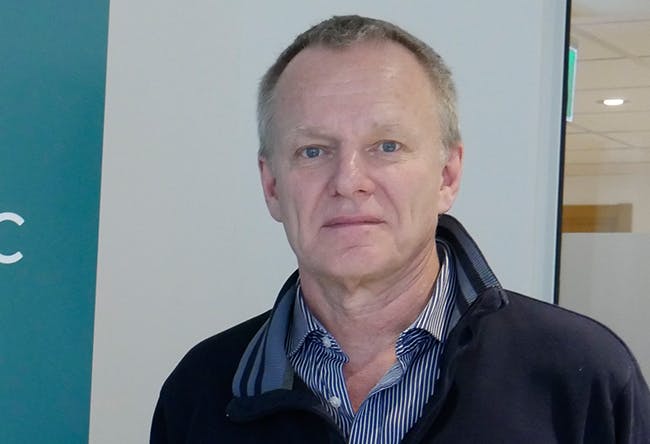‘The differences in the infection percentage in Sweden and our neighbouring countries hardly justify the closing of borders’
2020-05-24
Three quick questions to virus expert Bo Niklasson about Covid-19 immunity and how to open the borders

Bo Niklasson is a research physician who underwent specialist training at the United States Army Medical Research Institute of Infectious Diseases. He is the former director of the Department of Defense Microbiology at the then Swedish Institute for Infectious Disease Control and former director at a WHO collaborating centre, with special responsibility for serious virus infections. His CV also includes practical experience of handling the Ebola outbreak in the 1990s and a former adjunct professorship in virology at Karolinska Institutet. Bo Niklasson will serve as New Republic’s expert adviser for the duration of the coronavirus outbreak.
In Sweden, the number of people immune to Covid-19 appears to be lower than expected? Did the epidemiologists and statisticians get their calculations wrong?
– I don’t think they got their calculations wrong; on the contrary, we are currently seeing the slowing down of the spread of infection, as many had predicted. Based on random samples to detect the presence of the virus, i.e. the ongoing infection, in the population, it can be estimated that immunity should increase monthly by between five and ten per cent. The accumulated knowledge suggests that in theory everyone who has contracted coronavirus has some degree of immunity. The antibody tests identify some, but obviously not all, of the immune group. Another group of people, including children, have low susceptibility to this coronavirus and therefore hardly contribute to the spread of infection. Only when you put these groups together, does the slowing down of the spread of infection become comprehensible. We are therefore not that far off herd immunity than you might think if we only look at antibody tests.
Neighbouring countries are thinking about excluding Sweden when they open their borders to other countries. What can we do about that?
– Sweden has in some respects chosen its own way of dealing with the virus outbreak, which has drawn international attention and raised questions about how the spread of infection has progressed here. To answer the questions, we need to find out the facts. By testing regularly to see what percentage of the population at the time of the test is infected, we can have a fact-based discussion instead of guesswork and media headlines. If we could come to an agreement with our neighbouring countries about taking repeated random samples, preferably on the same date, we would have a very good instrument for evaluating the benefit of keeping borders closed.
How do you think the infection percentage differs between the Nordic countries at present?
– My guess is that the differences in the infection percentage in Sweden and our neighbouring countries hardly justify the closing of borders. If tests, for example, were to show that 1.9 per cent of the population in Malmö are currently infected with the virus, and the corresponding percentage in Copenhagen is 1.4, then that is hardly a reason to keep the Öresund Bridge closed. If the capital cities have roughly the same infection percentage, then flights between them could resume. On the other hand, if there are large differences, that suggests travel restrictions should remain in place. My main point is that knowing is better than guessing. Travelling in areas where the infection percentage is roughly the same isn’t a problem in itself; rather, the spread of infection is determined by how we act in the places where we are.
Bo Niklasson was interviewed by Olle Schubert, CEO of New Republic. ‘Three Quick Questions…’ is a series of interviews conducted by New Republic.